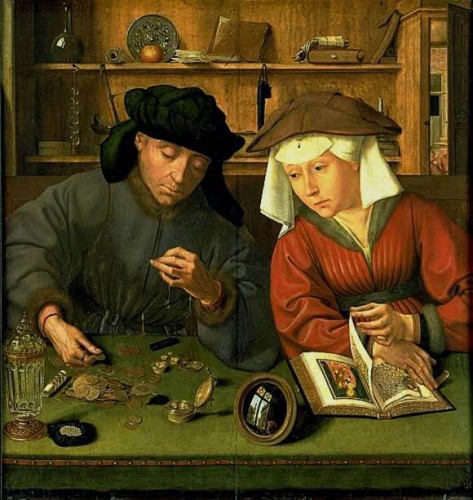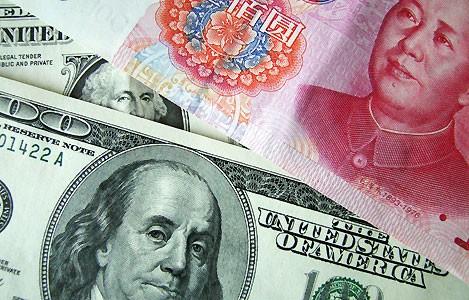Dominique VENNER
Translated by Greg Johnson / Ex: http://www.counter-currents.com/
Violence is not merely a matter of arms. For half a century, a world system has been imposed, the system of “soft commerce.” Soft as bombs. It dominates peoples under the guise of democracy, breaking down the most sacred customs. This new violence reigns thanks to the drugs of consumption and guilt. It is not, however, without resistance.
Georges Sorel is famous for having published his often reprinted Reflections on Violence in 1906.[1] A partisan of revolutionary socialism read by Lenin and Mussolini alike, Sorel made himself the apologist of violence as the motor of history.
In his essay, he worried about an anemic dearth of social violence that he thought he observed in Western Europe and in the United States:
Education is dedicated to so attenuate our tendencies to violence that we are instinctively led to think that any act of violence is a demonstration of a regression towards cruelty. . . . One has to wonder if there is not some silliness in the admiration of our contemporaries for softness.
These remarks, going back one century, could be from today. They certainly grab one’s attention and interest.
Less than ten years after Sorel’s morose report, the Great War commenced, showing something quite different from a general penchant for softness. This war was followed in Russia and Europe by a series of revolutions and civil wars, whose dominating feature was not peace. And the Second World War which followed, together with after-effects like the generalization of terrorism, was also not a demonstration of peaceful tendencies.
Europe in Dormition & Repentance
In other words, one is often misled by forecasts that imagine the future as an extension of the present. Under the effect of unexpected emotions or collective commotions, the softness or flabbiness of one time can suddenly be cast off in irresistible violence. The history of peoples and societies is not governed by a principle of continuity, but by unforeseeable accidents.
In Europe today (but not elsewhere), everything leads one to suppose that history with its violence and politics has reached its final end. Those who have read my Siècle de 1914 (Century of 1914) know that I have interpreted the time that followed the Second World War as Europe’s entry into dormition after half a century of violent follies. This dormition is not unrelated to a project of culpabilization and demoralization without parallel.
With courage and clarity, this project was analyzed in 2003 by intellectuals worried by the rise in France of anti-Semitism because of Maghrebian immigration. According to these authors, this immigration had been supported by certain Jews who, “making a tragic mistake, believed in a possible alliance between the assertion of Jewish identity and the celebration of minorities and localisms, in short, of ‘the Other’ against the nation.”[2] Intense immigrationist propaganda was seen as an error.
But, the authors said, it was necessary to go back to the 1960s to find the roots of French and European demoralization, when the memory of the “Shoah was imposed as . . . a decisive reference mark of a culpability that does not concern just the Nazis but . . . everyone in Europe, the people as a whole.” For “the Shoah forbids the European people any historical hope and locks up them in remorse.” A disturbing report. Fifty years after, Europeans doze on, crushed by remorse, “outcasts of history.” For how long? That we do not know. But it cannot be forever.
Dreams of Happiness, “Soft Commerce,” & Violence
In Europe, the anticipated end of history and dreams of hedonism cannot be isolated from a public discourse nourished by the myth of “soft commerce” invented long ago by Adam Smith.
What were its practical effects on lived history? The experience of the last two centuries shows that “soft commerce” is rarely a guarantee against violence. Least of all because it replaces politics (reason) with morality (emotion). Emotion sells more than reason. But, in addition to daydreams, it is often the purveyor of slaughter, both religious wars and in the ideological wars of the twentieth century.
In spite of Adam Smith’s promises, the intensive exercise of “soft commerce” on a global scale was accompanied by not exactly moderate amounts of violence. If one looks at the nineteenth century, there were, inter alia, the Opium Wars (1840–1842, 1858, 1860) in which France and Great Britain forced open the frontiers of China. This was necessary to give China the benefit of biblical morality and opium traffic, at the cost of the destruction of thousand year old traditions. Carried out for the profit of “soft commerce,” the Franco-British armed interventions eventually led China to a series of revolutions, which were preludes to the great slaughters of Maoism.[3]
One can chalk up many more colonial and national conflicts to the benefit of “soft commerce.” It played a large role in the two World Wars, which were not free of economic motives.[4] Globalizing the Anglo-American “free market” was not done without a little breakage . . . One of the more recent instances of damage, masked by moral and democratic justifications (a redundancy), is the war in Iraq begun in 2003. The control of an important source of hydrocarbons necessary to “soft commerce” is the likely reason that Saddam’s Iraq, a regime that was rather brutal (which is nothing unusual) but also stable, was put to fire and sword.
Notes
1. One of the contributions of Georges Sorel (1847–1922) to political thought is the concept of myth to designate the mobilizing images around which great historical movements are constituted (Nouvelle Revue d’Histoire, no. 13, pp. 20–22).
2. Article published in Le Monde, December 30, 2003, under the signature of Gilles Bernheim, chief rabbi and philosopher, Elisabeth de Fontenay, professor of philosophy, Philippe de Lara, professor of philosophy, Alain Finkielkraut, writer and professor, Philippe Raynaud, professor of philosophy, Paul Thibaud, essayist, Michel Zaoui, lawyer.
3. See La Chine et l’Occident, Nouvelle Revue d’Histoire no. 19, July–August 2005.
4. Georges-Henri Soutou, L’or et le sang. Les buts de guerre économiques de la Première Guerre mondiale (Paris: Fayard, 1989). We have discussed this subject in many issues of Nouvelle Revue d’Histoire, notably in nos. 14 and 32.
Source: http://www.dominiquevenner.fr/#/doux-commerce/3272231
Violence & “Soft Commerce,” Part 2
Now that “soft commerce” has been globalized since the end of the 20th century, one must grant that it has the advantage of a plasticity and a capacity for survival enjoyed by few regimes up to the present.
“Soft commerce” is sheathed in abstract concepts like “capitalism” or “liberalism.” But because those have been used for so many indigestible cuisines, their significance is exhausted. Another concept, more recent, is “cosmocracy.” It was coined by American authors and was taken up again by Samuel Huntington in his last book Who are We?[1] I myself have used it. It is explicit. It suggests the character that the globalist oligarchy acquired little by little since the 1960s.[2]
But let us return for a moment to the internal logic of “soft commerce.” What is its goal? It is the individual financial profit of the capitalist, regardless of the cost to others. Having become dominant in our societies, this objective was promoted to the rank of supreme value, justifying everything, in particular what was at once condemned by common sense and the most elementary social morals. In the Communist Manifesto of 1848, Karl Marx aptly described the unlimited destructive power of the system that he called “bourgeois,” even though the personal behavior of many bourgeois individuals contradicted his thesis. Recall his famous lines:
Everywhere where it seizes power, the bourgeoisie trampled underfoot feudal, patriarchal, and idyllic relations. All the complex and varied ties which linked feudal man to his natural superiors, were mercilessly shattered so that no other tie remained between men but cold self-interest. . . . This constant social upheaval, this agitation, and this perpetual insecurity distinguish the bourgeois era from all preceding ones.
Marx was delighted by soft commerce’s constant pressures against the old European order. In this eyes, they presaged the advent of post-bourgeois society, i.e., of the communist utopia. They presaged a homogenized world and the end of history with a capital “H.” Marx was almost right. He just needed this nuance: “Soft commerce” has ultimately showed itself to be far more durable, although no less perverse, than the communist utopia, some aspirations of which it carries out by other means.
The Convergence between Communism and “Soft Commerce”
The convergence of the two systems was remarkably analyzed by Flora Montcorbier in a wrongfully forgotten book.[3] Economist and philosopher, with a vigorous clarity, she gives us a key to plausibly interpreting the organized chaos that replaced our traditional societies.
No one before her cared to understand the curious outcome of the cold war, the great upheaval. Exactly who won on this fake war? The United States, of course, and “soft commerce.” But also their common religion, the religion of Humanity (with a capital “H”), one, uniform, and universal. And it was not their only affinity.
What did the Communists want? They wanted a planned management of the wealth of humanity. They also wanted the creation of a new man, a rational and universal man, freed of the “obstacles” of roots, nature, and culture. They wanted, finally, to satisfy their hatred of concrete men, the bearers of difference; their hatred of old Europe, multiple and tragic.
And “soft commerce,” in other words, the American West, what did it want?[4] Pretty much the same thing. The differences were in their methods. Rejecting planning and forced collectivism (terror), “soft commerce” sees the financial market as the principal factor of economic rationality and the desired changes.
“Soft commerce,” another name for globalism, does not only share its radiant vision of the final goal with its Soviet brother and former enemy. To change the world, it must also change man, manufacture the Homo oeconomicus of the future, the zombie, the New Man: homogeneous, empty, possessed by the spirit of the universal and unlimited market. The zombie is happy. Happiness consists in satisfying all his desires, the desires caused by the market.
Notes
1. Samuel P. Huntington, Who Are We: The Challenges to America’s National Identity (New York: Simon and Schuster, 2005).
2. Dominique Venner, Le Siècle de 1914 (Paris: Pygmalion, 2006), ch. 10.
3. Flora Montcorbier, Le Communisme de marché [Communism and the Market] (Paris: L’Age d’Homme, 2000).
4. We do not confuse the “Western-American system” with Americans taken individually, who often suffer from it.
Source: http://www.dominiquevenner.fr/#/doux-commerce/3272231
Violence & “Soft Commerce,” Part 3
The System is Nourished by Fake Opposition
One of the characteristics of the system is that it is nourished by its seemingly most extreme opponents. If one is astonished by this surprising fact, one is forgetting that the opposition known as the “left” and the system share the religion of humanity and thirst for deconstruction; they are the same in essence. Thus nobody laughed when the papers of an implacable rebel (Guy Debord) were classified as a “national treasure” by the director of the National Archives in June 2009.
Explanation: “soft commerce” needs the counter-culture and its opposition to nourish the unlimited appetite for “pleasure without boundaries” which feeds the market. The fake rebellion of the cultural realm has been co-opted and institutionalized. The experiments of people who are more than a little crazy renew the language of advertising and haute couture which nourish innovation and excitement. The rights of minorities—ethnic, sexual, etc.—are also extended without limit since they constitute new markets and offer moral support to the system.
The unlimited is the horizon of “soft commerce.” It nourishes the work of moles in the realms of culture, the stage, teaching, the university, medicine, justice, or the prisons. Those who are naively indignant when delirious and repugnant buffooneries are extolled do not understand that they have been promoted to the rank of commodities, and as such they are both ennobled and essential.
The only dissent that the system cannot absorb is that which challenges the religion of humanity and stands for respecting diverse identities. The irreducible ones who cannot be dissolved by “soft commerce” are those who are attached to their city, their tribe, their culture, or their nation, and also honor the attachments of others. This is why, in spite of their possible electoral representation in the European Parliament, these dissidents are subjected to rigid segregation (except in Italy).
This uncomfortable fate could lead them to think they have only one political option when the system is disrupted and distracted by an emergency, Politics might regain its rights.[1] Then “soft commerce” could be put back in the subordinate and dependent place where it belongs in a world in order.
Appendix: Two Different & Opposed Conceptions of the Economy: Adam Smith & Friedrich List.
Adam Smith (1723–1790). British economist born in Scotland. Traveling to France, he connected with the physiocrats (Turgot). In 1776 he completed his great work, An Inquiry into the Nature and Causes of the Wealth of Nations, which made him the theorist of economic liberalism. For Smith, the psychological engine of all economic activity is self-interest and the hedonist principle which drive men to seek maximum satisfaction with minimum effort. He believes in the spontaneity and beneficial character of economic activity (the “hidden hand” and “soft commerce”). It realizes the designs of Providence. The State must “laisser faire, laisser passer.” Adam Smith justifies international free trade which is appropriate for maritime powers like Great Britain and later the United States.
Friedrich List (1789–1846). German economist. Partisan of the abolition of tariff barriers between the German States (Zollverein), he could not make himself heard and thus exiled himself to the United States (1824), where he made a fortune. After his return to Germany, when the Zollverein was achieved (1834), he pioneered railroad construction. Ruined by a financial crisis, he committed suicide in 1846. He theorized the autarky of great spaces: an economy that is protectionist externally and liberal internally. Unlike Adam Smith, List did not believe in the mutual enrichment of nations by “soft commerce” but in eternal economic war. His principle, “strong economy and strong army,” would be applied by the great powers: The United States practiced protectionism while prohibiting it for the rest of the world.
Notes
1. Politics with a capital “P” designates the superior principles of power (to command, to judge, to protect. Politics with a small “p” designates practice.





 del.icio.us
del.icio.us
 Digg
Digg
 Een interessant artikel over Starbucks, het trendy imago daarvan bij links Europa en de nieuwe vestiging in Antwerpen.
Een interessant artikel over Starbucks, het trendy imago daarvan bij links Europa en de nieuwe vestiging in Antwerpen.